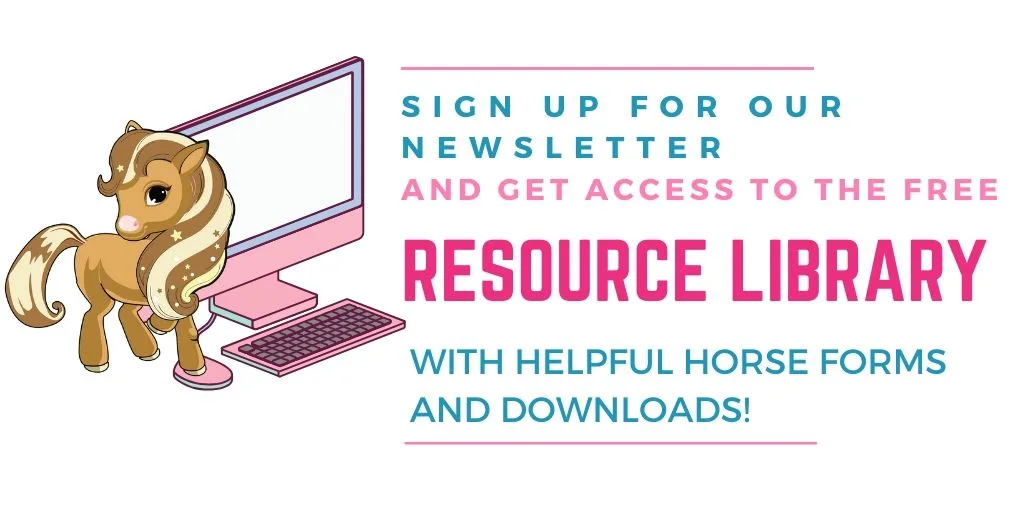If you’re thinking about introducing donkeys on your property, you’re probably worried about how they’ll interact with the horses, dogs, cats, chickens, and other animals you’re raising.
Most people worry about how introducing a new dog into the family will change the dynamic, much less a larger animal like a donkey.
Donkeys aren’t mean. They do, though, have distinct differences from other animals you may be more accustomed to being around.
Too many people lump donkeys in with horses. While there are certainly similarities, donkeys are completely different animals.
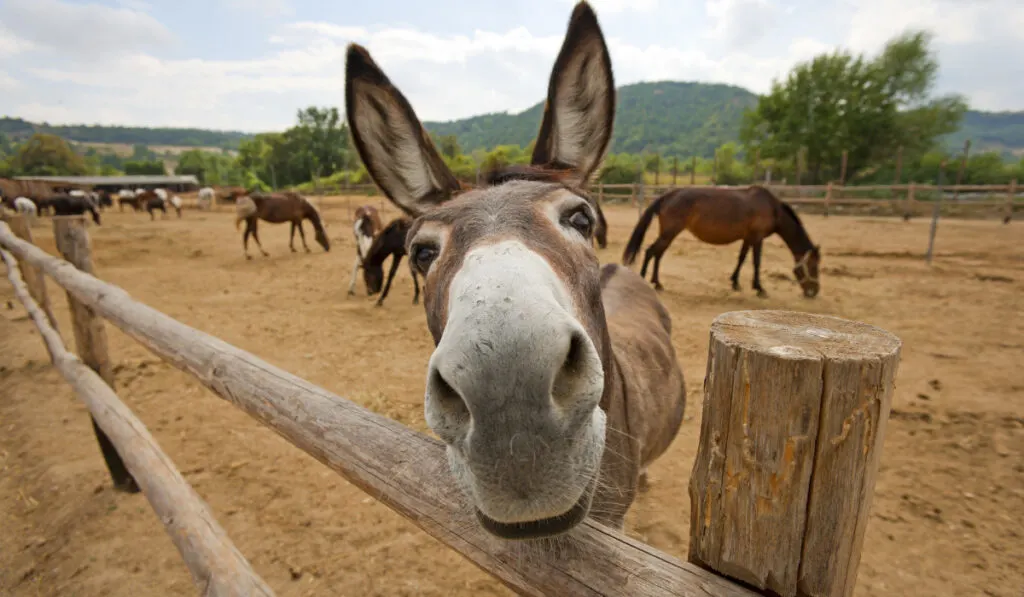
For instance, donkeys are often more territorial than horses. They may not like it when sheep, horses, or even other donkeys get too close. How your donkey acts will depend largely on the individual. Some get along great, while others want to be left alone.
You should make sure to closely supervise any animal introductions rather than just throwing them in an enclosure with other animals.
Here is some helpful information about donkey temperament and how you can interpret their behavior. Understanding why donkeys act the way they do can minimize risk to you, visitors, and any other animals you’re raising.
Table of Contents
Are Donkeys Dangerous?
Donkeys sometimes get a bad rap for being stubborn, ornery animals. This is sometimes an earned reputation. Their tendency to be territorial occasionally means kicks and headbutts to any person or animal that gets too close.
Many people keep their donkeys separated from other animals with strong fencing to keep everyone at peace.
Still, donkeys are also known for forming incredibly strong bonds with humans, companion donkeys, and other animals. They’re used in some areas to watch over goats, for example, against threats from coyotes or foxes.
Another worry some people have when interacting with donkeys is that their moods and behaviors are harder to read. With horses, you have a very expressive animal.
You’ll know when they are excited, happy, angry, being stubborn, etc. They’ll make noises, change the way they move, and even become slightly aggressive with people around them.
Donkeys, on the other hand, are much more stoic. It’s hard to discern what they’re feeling and what they are about to do.
One of the main ways that donkeys express emotion is via their eyes. Widening of the eyes can indicate a change in mood, however, it can mean they are curious about something or someone new, or it could mean they’re afraid or stressed about something.
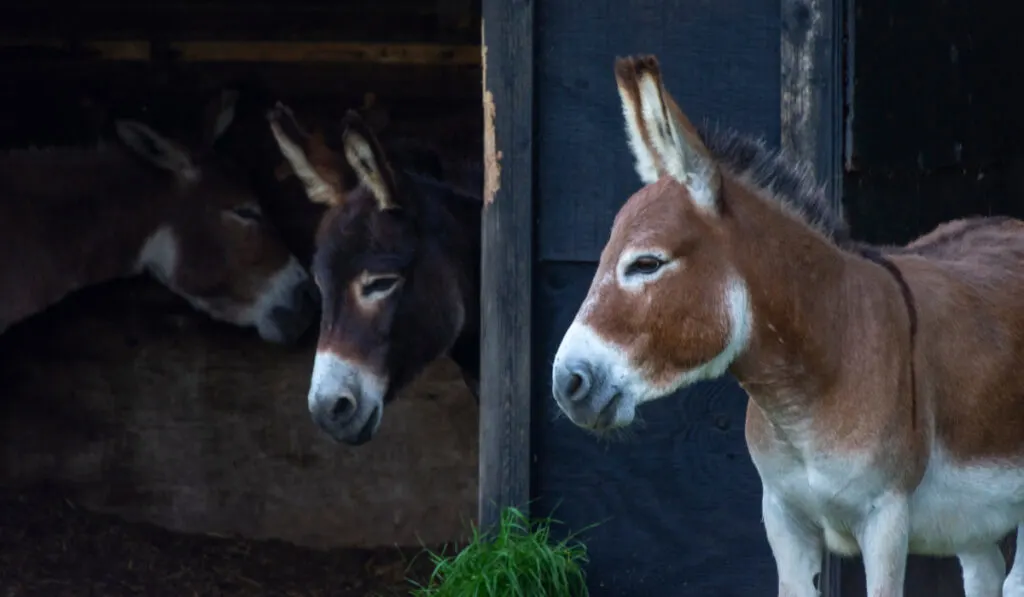
Spending Time with Your Donkey
If you’ve got a grumpy donkey, spending time with them is the best way to learn their moods and help them grow more accustomed to being around you.
This isn’t typically a problem that people who raise young foals experience, because by the time they are fully grown, they know who you are and that you pose no threat to their safety.
If you buy an adult donkey, or you adopt one, then there is likely going to be an adjustment period.
Start out by just making a point of being around your donkey for a good amount of time every day. Then, as they become more comfortable, you can start introducing physical touch and grow your relationship from there.
Donkeys grow very strong bonds with owners who treat them well. They’ll even become defensive of you if any other animals are around. You will learn to understand their mood and why they are acting certain ways and react appropriately in response.
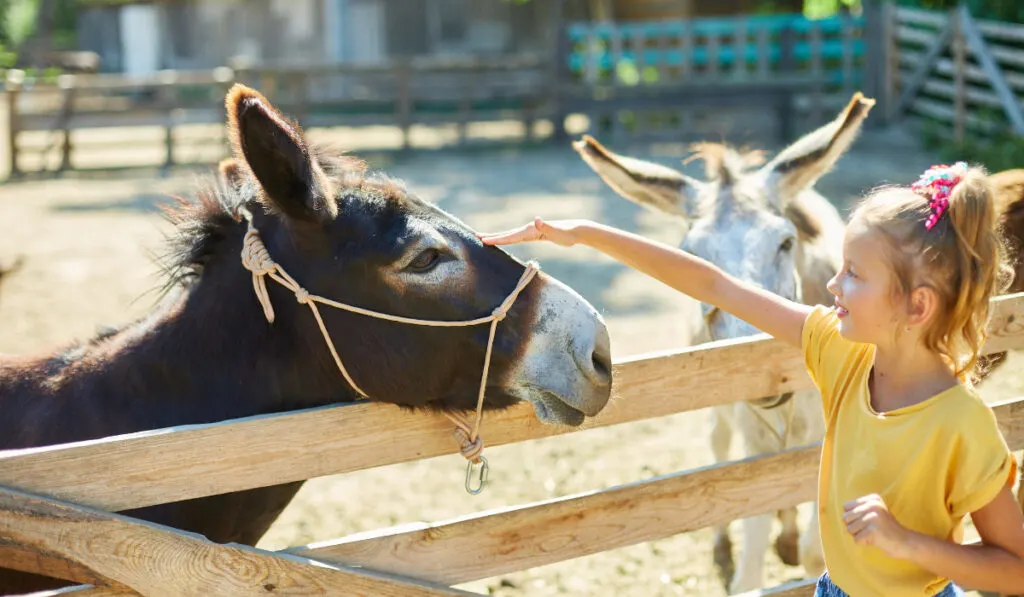
Interpreting Mean or Dangerous Donkey Behavior
What if your donkey is suddenly acting mean or otherwise acting out? Strange swings in donkey temperament and behavior can indicate sickness or discomfort.
Again, donkeys are not very expressive animals, so when they do start communicating, it can come off strongly versus other animals who are more communicative by comparison.
When you spot your donkey acting up, one of the first things you should ask yourself is whether your donkey is sick.
They could, for example, have digestive issues, and some donkeys start to get grumpy in old age because they start to lose their hearing or their eyesight.
It’s always a good idea to take a grumpy donkey to the vet to get them checked out. There could be a lingering or developing health concern that you should be aware of.
Here are some other possible causes of bad donkey behavior:
- Too little space – If your donkey doesn’t have enough room to feel comfortable, they will let you know it. This goes especially for when donkeys feel like they are in too close proximity to other animals they don’t like being around. Think of ways you can give them more space to ease their anxiety.
- They sense potential threats – If your donkey smells or hears coyotes or foxes on or near your property, they can become skittish and angry.
- Changes to their environment – Even something as small as changing their feeding station is enough to set a donkey off and make them irritable.
They don’t like sudden change, so don’t go making massive adjustments to their enclosure or their social pecking order. They will often react strongly against whatever you’re doing. Make any changes slowly so they can adjust in their own time.
- Changes in people they interact with – If you’re introducing new people to the donkey such as kids, a new employee, or a new neighbor moves in, it will take the donkey time to adjust.
Remember, these are territorial animals, so they won’t take too kindly to someone new being around. Give them time and make sure you are there frequently when the other person is interacting with your donkey.
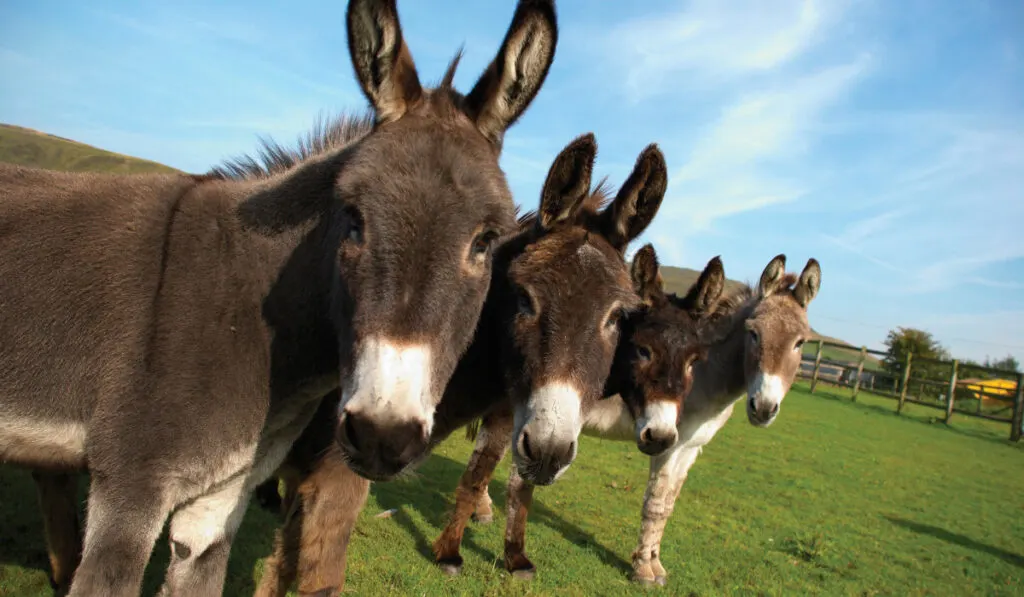
Conclusion
At the end of the day, if your donkey is being mean or you feel like they are exhibiting dangerous behavior, go through a mental checklist to narrow down what could be the cause.
Are you making significant changes to their environment? Could they be sick? Has your behavior and the way you interact with them changed?
Do your best to reward your donkey’s good behavior. They are smart animals and respond well to positive reinforcement. Soon, they’ll be back on track and hopefully will be the docile, friendly animal you know them to be.

